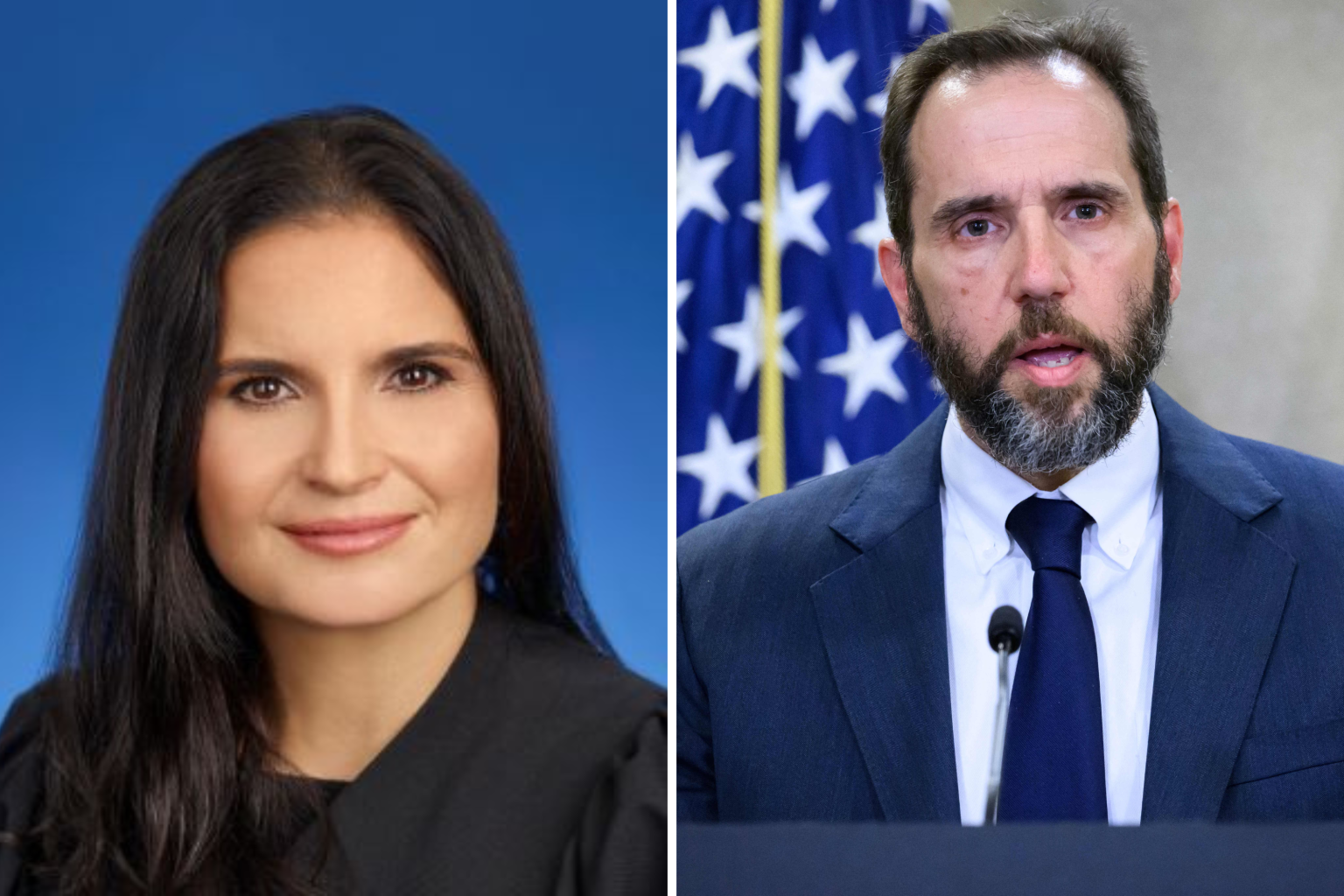Former federal prosecutor Randall Eliason argued that the Department of Justice (DOJ) should take a four-step approach if Judge Aileen Cannon rules in favor of Donald Trump’s motion to challenge the legality of special counsel Jack Smith’s appointment in the classified documents case. Trump was indicted by Smith on several federal charges related to retaining classified documents after leaving the White House and obstructing government efforts to retrieve them. Trump has pleaded not guilty, claiming the case is politically motivated. His legal team argues that U.S. Attorney General Merrick Garland’s appointment of Smith was invalid because it lacked Senate approval. Arguments were heard in court on Friday regarding Trump’s motion.
Judge Cannon, who was appointed by Trump in 2020, is facing criticism for delaying the trial and not setting a start date. The trial has been indefinitely postponed, which has implications with the upcoming November election where Trump is set to face off against President Joe Biden. Partisan issues have arisen around the case, with Cannon hearing arguments from both sides on Friday. Trump’s attorney argued that the DOJ risked creating a “shadow government” by appointing special counsels for select criminal cases, while prosecutors maintained that Smith’s appointment was proper and in compliance with department policies. The hearing is set to continue on Monday, with discussions on a limited gag order that prosecutors have requested to prevent Trump from making statements that could endanger law enforcement officials involved in the case.
Eliason proposed a plan for the DOJ to follow if Judge Cannon dismisses the indictment due to Smith’s allegedly unlawful appointment. The plan includes having the U.S. Attorney in Florida refile the same charges in a new case, reassigning the case to a new judge, and designating Smith’s prosecution team as Special AUSA’s in Florida to continue prosecuting the case. There have been suggestions for Smith to request the U.S. Court of Appeals for the 11th Circuit to remove Cannon from Trump’s case, which Smith has not yet acted upon. The DOJ has been called upon to respond to these suggestions and the ongoing legal proceedings.
The controversy surrounding the legality of Smith’s appointment and Trump’s indictment adds complexity to the high-profile case involving classified documents. Trump’s legal team and the DOJ are engaged in legal battles over the legitimacy of the special counsel’s appointment, highlighting the political tensions surrounding the case. The delayed trial has implications for the upcoming election, with the first presidential debate scheduled for June 27. Partisan criticisms of Judge Cannon and arguments from both sides regarding the appointment of special counsel add layers of complexity to the legal proceedings.
The ongoing legal saga involving Trump’s indictment, the appointment of special counsel Jack Smith, and the delay in setting a trial date have raised concerns over the politicization of the justice system. Critics have accused the DOJ of creating a “shadow government” through the appointment of special counsels, while prosecutors maintain that the appointment was proper. The case continues to be a focal point of political and legal discussions, with calls for action from both sides regarding the dismissal of the indictment and the reassignment of the case to a new judge. The outcome of the legal proceedings will have far-reaching implications for Trump, Smith, and the broader political landscape leading up to the November election.


